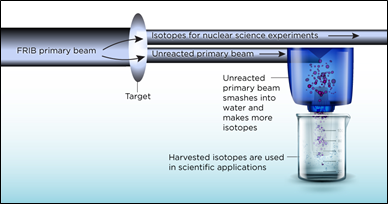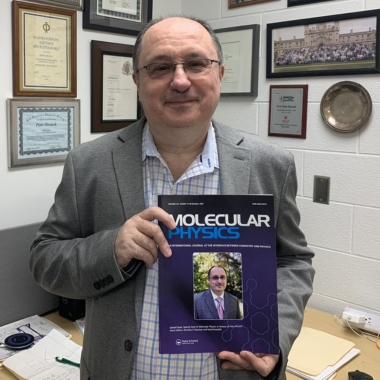Reaping FRIB's Isotopes to Sow New Science

The Department of Energy Office of Science’s Office of Nuclear Physics is supporting Spartan scientists with a new grant worth $13 million over the next four years to build up FRIB’s isotope harvesting capabilities. The DOE Isotope Program supports the grant.
Greg Severin, Assistant Professor in the MSU Department of Chemistry and FRIB faculty member, is lead investigator.
"This grant is about broadening the scientific impact of FRIB," said Prof. Severin. "While physicists at FRIB are making groundbreaking fundamental discoveries, our team will be supporting exciting applied-science research. One of the most direct examples of that is in medicine, in what’s known as positron emission tomography scans, or PET scans," Dr. Severin added.

Before a PET scan, a doctor injects a patient with a tracer that contains isotopes that emit a small amount of radiation. A scanner then detects the radiation emitted by the tracer, which helps doctors diagnose and treat disease, such as cancer tumors, inside patients.
During routine operation for its nuclear physics mission — without interfering with FRIB’s primary users — extra, unused isotopes can be “harvested” using additional tools and infrastructure. These by-product isotopes are what Prof. Severin utilizes in his research.
While pushing the boundaries of nuclear physics, harvesting “bonus” isotopes, like those used in PET scans, could thus help researchers develop novel cancer treatments and diagnostics.
Read more on the College of Natural Science website.



